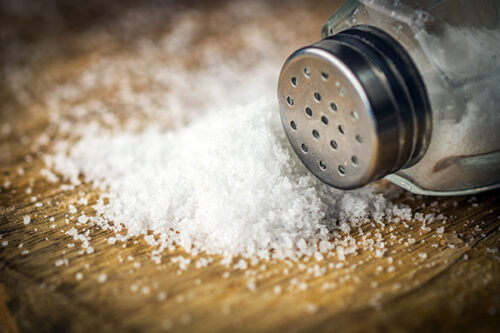Is Falling Asleep After Eating a Sign of Diabetes?

Is falling asleep after eating a sign of diabetes? Possibly. Many factors can cause you to feel sleepy after eating a meal, and diabetes is one of them. Other potential causes of post-meal sleepiness include the types of food you’re eating and the time of day you’re eating them. You may also feel sleepy simply because you’re not getting enough rest.
Many people associate falling asleep after eating with diabetes because it is a common symptom. People with diabetes can’t produce enough insulin to even out their blood sugar levels naturally, which can result in hypoglycemia (blood sugar is too low) or hyperglycemia (blood sugar is too high). Both can make you sleepy.
Understanding Post-Meal Sleepiness
If you’ve ever joked about being in a “food coma,” you already know about post-meal sleepiness. But, did you know there’s a scientific term? “Postprandial somnolence” is the official term used to describe feeling tired after eating.
Postprandial somnolence can cause feelings of:
- Brain fog
- Drowsiness
- Lethargy
- Low Energy
- Sleepiness
- Physical exhaustion
Getting a light version of these feelings is normal because your body changes your blood flow to help digestion. When these feelings are overwhelming and constant, there is a problem.
So, what do we mean by changing blood flow?
Basically, your body naturally diverts blood flow to your digestive system after a meal. The blood flow aids the digestive system in processing food and absorbing nutrients.
The excess blood assisting with digestion is taken from the brain, which is why you can start to feel drowsy.
Diabetes and Sleepiness: The Link
Anyone can feel sleepy after a meal. But if you have diabetes—or are at risk of developing it—you need to pay close attention to how you feel after eating, especially if you feel tired.
As mentioned, eating a meal can cause hyperglycemia (high blood sugar levels) and hypoglycemia (low blood sugar levels). Maintaining blood sugar levels is crucial for living with diabetes.
When someone is experiencing hyperglycemia, they can feel:
- Sleepy
- They have to urinate more
- They have blurry vision
- Thirsty
Hypoglycemia causes symptoms like:
- Anxiety
- Confusion
- Dizziness
- Fatigue (If it’s chronic)
- Shaking
- Sweating
Depending on your symptoms, you may need to make some alterations to your meals and when you eat them. For example, one study found that evening meals caused a higher state of postprandial hyperglycemia.
If you have diabetes, don’t forget to check your blood sugar levels in the morning when you wake up. We don’t recommend checking them after meals because you’ll always get a higher reading. Each individual’s experience with diabetes is different, so make sure you bring any concerns to your doctor.
Is Falling Asleep After Eating Sugar a Sign of Diabetes?
We’ve all heard of the phrase “sugar rush,” but did you know it’s actually a myth?
One study that analyzed 31 different studies concluded that there is no improvement in mood or energy after eating sugar.
Sadly, “sugar crashes” are real through. That same study found higher levels of fatigue and less alertness after the first hour of eating sugar.
So, is falling asleep after eating sugar a sign of diabetes? Not necessarily. While it can be a sign, like post-meal sleepiness, it can also be something everyone experiences, whether or not they have diabetes.
If this becomes a common occurrence, then talk to your doctor about it and your concerns about developing diabetes.
4 Other Causes of Post-Meal Tiredness
There are reasons for feeling post-meal drowsiness that don’t involve diabetes.
1. What You’re Eating
The type of food you consume can cause tiredness after eating. Foods full of tryptophan (an amino acid) and fats can make you fall asleep after eating as well as any food that your body can’t tolerate.
Foods that are high in tryptophan include:
- Chicken
- Beans
- Egg whites
- Fish
- Milk
- Nuts
- Seeds
- Tofu
- Turkey
2. How Much You’re Eating
How many of us have splurged on a big holiday meal and immediately wanted to sleep? This is because the larger the meal, the more energy it takes to digest everything, and that energy use makes you fall asleep.
3. Other Medical Conditions
Other medical conditions can cause post-meal sleepiness, like thyroid issues or anemia.
4. Your Quality of Sleep
If you’re not sleeping well at night, that will make you more tired throughout the day. Post-meal tiredness can be even more obvious to you than if you had a good night’s sleep.
When to Seek Medical Advice
Where is the line between innocent post-meal sleepiness and a more concerning condition? You should make an appointment with your doctor if:
- You can’t stay awake after eating
- You experience common diabetes symptoms like increased thirst and urination
- You feel like something is wrong, even if you can’t pinpoint it
- You notice erratic changes in your blood sugar levels
- You notice other unusual symptoms along with tiredness
Prevention and Management Strategies
How can you prevent or manage post-meal tiredness without a doctor’s intervention? Well, you can:
- Drink less caffeine and alcohol
- Eat smaller, more frequent meals
- Exercise more
- Improve your diet
- Improve your sleep quality
- Manage stress
- Stay hydrated
- Take a short nap
The Bottom Line: Is Falling Asleep After Eating a Sign of Diabetes?
While it can be a sign of diabetes, it’s also a normal phenomenon that happens to everyone. To find out if it’s diabetes, watch for other symptoms and consult a physician.
If you’re looking for more information about diabetes or the types of foods that better manage diabetes, we encourage you to read our collection of useful (and interesting!) articles on diabetes.
Recommended Articles

Fatigue

Salt: The Scapegoat for the Western Diet






